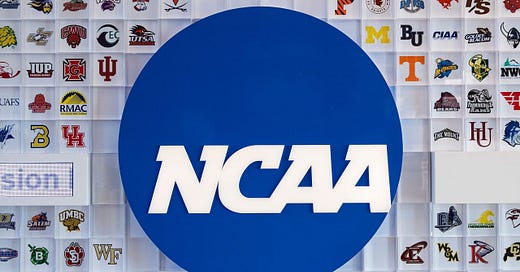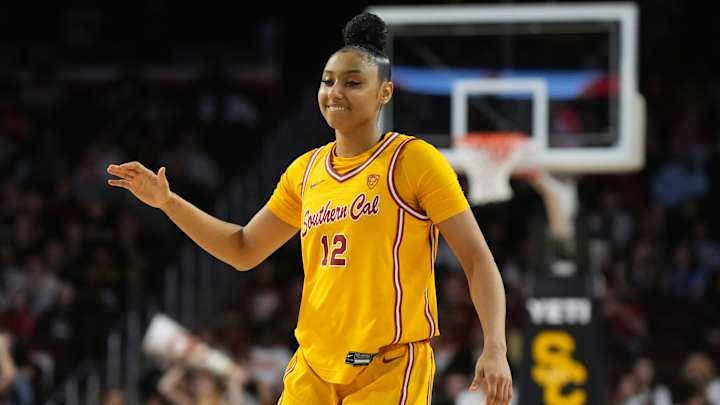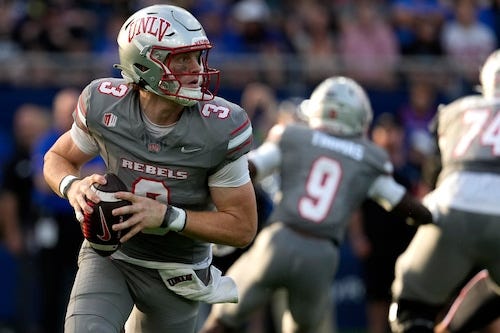Judge Wilken Preliminarily Approves House Settlement, Juju Watkins Signs Big Nike Extension + ICYMI | Newsletter #278
Today’s Thursday newsletter includes highlights from this week, important news from last week, and what to watch for.
Keep up to date on all of our newsletters and content by checking out past Optimum Sports Consulting Newsletters, and following us on Twitter!
Recapping Major News This Week:
NCAA House Settlement Preliminarily Approved
Judge Claudia Wilken concluded, on a preliminary basis only, that the $2.8 billion settlement to resolve the House, Carter and Hubbard antitrust cases complies with the requirements of Federal Rule of Civil Procedure 23 that the agreement be fair, reasonable and adequate.
With the House settlement preliminarily approved, some important upcoming dates include January 31st (the deadline for athletes to opt in or out), March 3rd (the parties’ deadline to respond to the objections), and April 7th for a fairness hearing.
During the fairness hearing, Judge Wilken will hear from athletes, schools and conferences who object to the settlement or otherwise wish to express concerns - objectors can speak at this hearing and submit written comments. After this hearing, Wilken could deny final approval and urge the parties to make changes, with the cases returning to the docket a possibility.
CLICK HERE to learn more.
Juju Watkins Signs a “Historic” Nike Extension
ESPN insider Shams Charania reported Tuesday that USC women’s basketball star, JuJu Watkins, agreed to a multiyear contract with Nike that will give her one of the richest shoe endorsement deals in women’s basketball.
Watkins originally signed a deal with Nike as a high school senior at Sierra Canyon High School where she was named the Naismith High School Player of the Year, the Gatorade National Player of the Year, and the MVP of the McDonald’s All-American Game.
As a Freshman at USC, Watkins averaged 27.1 points, 7.3 rebounds, 3.3 assists, 2.3 steals, and 1.6 blocks per game and set a freshman record with 920 points. She was also named the Freshman of the Year by several publications and won the Best Breakthrough Athlete ESPY Award.
CLICK HERE to learn more.
Quick Hitter News:
New college football super league “Project Rudy” introduced - LINK
California policymakers urging schools to give direct NIL deals w/ college athletes & pay them directly - LINK
NCAA eliminates National Letter of Intent program - LINK
NCAA shortens college football and basketball transfer portals - LINK
Syracuse’s Chancellor speaks out on new vision for college football - LINK
ICYMI
UNLV Starting QB Matt Sluka Announced his Intent to Transfer Over Apparent NIL Dispute
"I have decided to utilize my redshirt year and will not be playing in any additional games this season," Sluka's statement read on his official X account. "I committed to UNLV based on certain representations that were made to me, which were not upheld after I enrolled. Despite discussions, it became clear that these commitments would not be fulfilled in the future. I wish my teammates the best of luck this season and hope for the continued success of the program."
It has been speculated that Sluka was verbally promised $100,000 from an assistant coach, but none of that money was paid.
This marked the first time, at least publicly, that a player has chosen to redshirt and transfer while in season due to their NIL agreements not being met. And since then, many players have followed in the hopes of preserving a season of eligibility and the possibility of more NIL money.
CLICK HERE to learn more.
What To Watch For: More State Law Changes to NIL
Picture
In a letter this week, California lawmakers urged their universities to directly pay athletes NIL money using California’s Fair Pay to Play Act, which permits direct pay & prohibits enforcement. While the House Settlement will permit schools to do this, it is not expected to happen before July. And if it is not approved by Judge Wilken, then the may take even longer for schools to directly pay athletes.
However, some states have passed laws similar to the “Fair Pay to Play Act” that permits direct pay & prohibits enforcement - Georgia, Illinois, & Virginia in particular. Having the ability to pay athletes directly through colleges is a huge advantage for whoever utilizes it. And as a result, I expect more states to create laws that mimic those that have been passed in the four states mentioned above. With the the college landscape evolving more and more everyday, expect more states to take matters into their own hands when it comes to how their schools handle “Pay for Play”… with or without potential NCAA changes as part of the House settlement.
Thanks for Reading!
Keep up to date on all of our newsletters and content by checking out past Optimum Sports Consulting Newsletters, and following us on Twitter!








